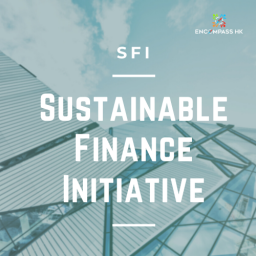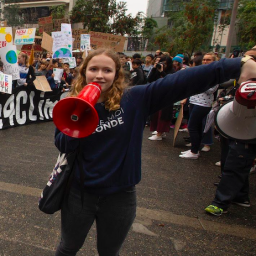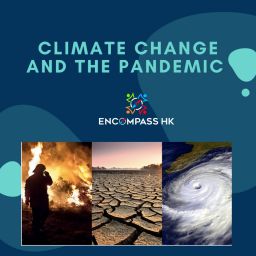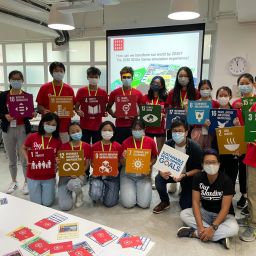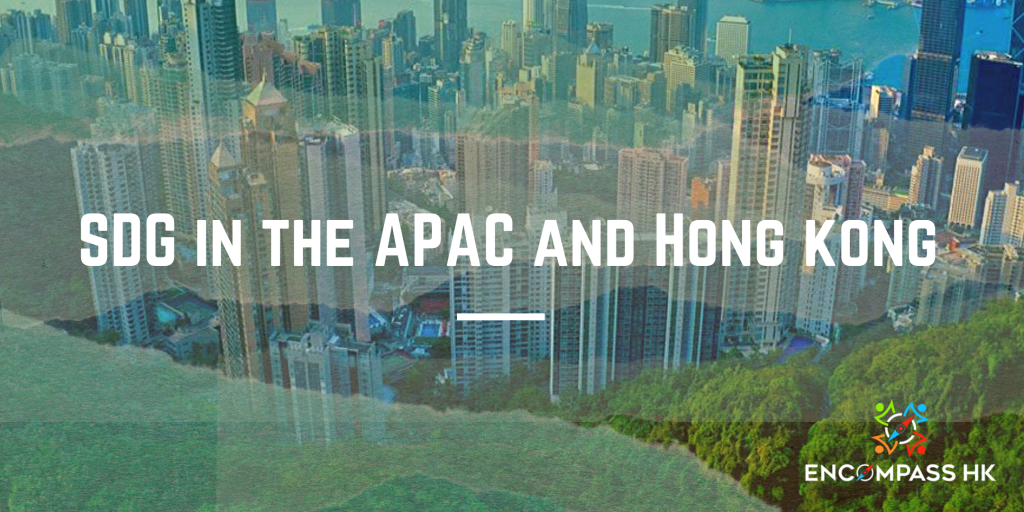
A new report published by the United Nations Economic and Social Commission (ESCAP) states that Asia and the Pacific will not achieve any of the 17 United Nations Sustainable Goals by 2030.
聯合國經濟和社會委員會最新發表的報告指出,亞洲及太平洋地區將無法在2030年達成聯合國17個可持續發展目標中的任何一個目標。

Although there has been notable progress in Goals One, Four and Seven, which aim to end poverty, ensure access to education and achieve affordable clean energy respectively, the pace of the current developments is undoubtedly too slow for them to be achieved by 2030.
More shockingly, progress on more than half of the SDGs, especially those related to the environment, has either stagnated or reversed. According to indicators, Goals Six, Eight and Twelve, which aim to provide clean water and sanitation, ensure economic growth and support responsible consumption and production respectively, have all displayed negative trends compared to 2015. In particular, by 2030, the worsening conditions of hazardous waste generation and the reduction of forest area and water bodies are projected to be the most severe. Of direct relevance to Hong Kong, SDG 11 that promotes sustainable cities has seen the biggest reversal amongst the 17 goals.
亞洲及太平洋地區雖然在滅貧(目標1)、優質教育(目標4)及可負擔的永續能源(目標5)方面取得一些進展,但發展步伐無疑太慢,將無法在2030年達到相關目標。令人震驚的是,超過一半的可持續發展目標,特別是有關環境方面的目標,大多停滯不前,甚至倒退。有關潔淨水資源(目標6)、可持續經濟增長(目標8)及負責任的消費和生產模式(目標12) 的指標與2015年相比均呈現負面趨勢。預計到2030年,有害廢物增多、森林面積及水資源減少將會成為最令人擔憂的問題。在17個可持續發展目標之中,與香港關係最密切的是,促進可持續城市發展(目標11)的倒退情況最為嚴重。

Since its intervention in 2018, the Hong Kong Chapter of the United Nations’ Sustainable Development Solutions Network (SDSN Hong Kong) has been working with both governmental and non-governmental organisations to localise the 17 goals. Moreover, the Hong Kong Jockey Club Charities Trust established a SDSN Youth platform in December 2018 to create opportunities for Hong Kong’s youth to connect their ideas and perspectives into national and regional pathways to achieve the goals.
In Hong Kong’s context, whilst ending poverty and hunger are less relevant, social issues related to health and education, combating climate change and making cities more sustainable are particularly pertinent.
聯合國可持續發展解決方案網絡香港分會(SDSN Hong Kong)自2018年成立以來,一直與政府及非政府組織合作,將17個可持續發展目標帶入本地社區。此外,香港賽馬會慈善信託基金亦於2018年12月成立了可持續發展解決方案網絡青年平台(SDSN Youth Platform),提供機會予青年人交流有關如何實現可持續發展目標的觀點及想法。香港的貧窮和飢餓問題並不嚴重,相對健康與教育、應對氣候變化及可持續城市發展方面的議題就更值得關注。
The Hong Kong Chapter of the United Nations’ Sustainable Development Solutions Network (SDSN Hong Kong) released on 11 September 2018 the findings of a city-wide survey of young people’s (aged 15–30) opinions about sustainable development in Hong Kong and their awareness of the Sustainable Development Goals (SDGs). The key survey findings there is an insufficient awareness of SDGs in the city. Only one in seven respondents (14.5%) said that they had heard about the SDGs.
The least important SDG was felt to be SDG 12 Responsible Consumption and Production. Nevertheless, 76% of respondents considered it to be important. This result is consistent with the findings of the ‘2018 SDG Index and Dashboards Report’ published in July 2018 by the SDSN and Bertelsmann Stiftung, which stated that ‘the world’s progress towards sustainable consumption and production patterns is too slow’
香港可持續發展解決方案網絡 (下稱網絡) 對本港15-30歲的年輕人進行了調查,了解他們對聯合國可持續發展目標的認識及香港可持續發展的意見。在2018年9月11日發表的報告指出,只有14.5%的受訪者,相等於每7個人只有1個人曾聽過「可持續發展目標」(SDGs),表示這城市的可持續發展關注度極低。另外,雖然76%的受訪者認為「目標12-負責任消費和生產」是重要的發展目標,但相比其他目標,大部分受訪者都認為其重要性是最低的。同年發表的「2018 SDG Index and Dashboards Report」報告 (由網絡和貝塔斯曼基金會共同撰寫) 亦指出,世界在負責任消費和生產方面發展步伐太慢。

Upon prioritising the need to promote Hong Kong as one of Asia’s leading sustainable international economic hubs, SDSN has hosted multiple Business Sustainability forums. Nonetheless, noting ESCAP’s call for urgent action to strengthen global partnerships through goal 17, lack of regional collaboration has threatened Hong Kong’s ability to promote sustained, inclusive and sustainable economic growth. Although efforts have been made to discuss current social trends and goal challenges in economic, politics, sustainability and climate change in relation to countries such as China and India, this is only a stepping stone to maintaining long-term successful collaboration in Asia and the Pacific. Furthermore, as data gaps remain for two thirds of the global SDG indicators in Asia, improving the quality of data and statistics is an essential step to measuring progress. It is in the interests of all countries, both regionally and internationally, to reverse negative trends and accelerate progress to ensure that Asia has the means to finance, target and implement policy solutions to achieve all goals.
為將香港建設成亞洲其中一個具國際領導地位的可持續發展經濟樞紐,可持續發展解決方案網絡已舉辦了多場可持續發展商業論壇。儘管如此,聯合國亞洲及太平洋經濟社會委員會(ESCAP)呼籲相關地區要加強在可持續發展全球夥伴關係(目標17)方面的合作,因缺乏地區性合作將影響香港推動可持續經濟發展的能力。雖然中國及印度地區已就經濟、政治、可持續發展及氣候變化等議題作過討論交流,但這只是維持亞太地區長期有效合作關系的第一步。此外,現時亞太區仍缺少了三分之二的可持續發展目標指標數據,現時首要的是設法提升各指標統計數據的質量,以更有效監察各目標的落實進度。確保亞洲地區有財務能力、明確目標及政策方案,儘快達成各個可持續發展目標,將有利於地區及全球的發展。





